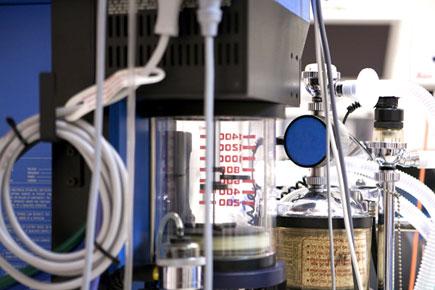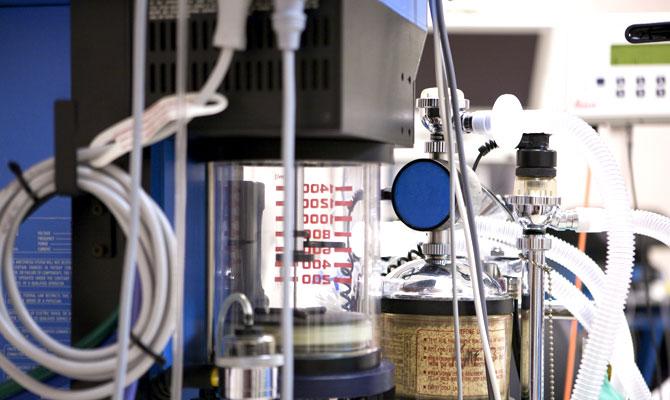Certain so-called "volatile" anaesthetics -- commonly used during surgeries -- may also possess powerful effects on the immune system that can combat viral and bacterial infections in the lung, including influenza and pneumonia, say researchers, including one of Indian-origin

Anaesthesia
New York: Certain so-called "volatile" anaesthetics -- commonly used during surgeries -- may also possess powerful effects on the immune system that can combat viral and bacterial infections in the lung, including influenza and pneumonia, say researchers, including one of Indian-origin.
The findings suggest that volatile anaesthetics may someday be helpful for combatting seasonal and pandemic influenza, particularly when there are flu vaccine shortages or limitations.
ADVERTISEMENT

Representational picture
"A therapy based on these inhaled drugs may help deal with new viral and bacterial strains that are resistant to conventional vaccines and treatments,” said Krishnan Chakravarthy, resident physician in the department of anaesthesiology and critical care medicine at Johns Hopkins University School of Medicine in Maryland, US.
To examine just how some inhaled anaesthetic drugs affect viral and bacterial infections, the researchers exposed mice to both influenza virus and Streptococcus pneumoniae bacteria.
The team discovered that giving the animals volatile anaesthetics, such as halothane, led to decreased bacterial burden and lung injury following infection.
The anaesthetics augmented the anti-bacterial immune response after influenza viral infection by blocking chemical signaling that involves type-I interferon, a group of proteins that help regulate the activity of the immune system, the study said.
Animals that were exposed to halothane had 450-fold less viable bacteria compared with non-halothane exposed animals, the findings showed.
"We hope our study opens the door to the development of new drugs and therapies that could change the infectious disease landscape," Chakravarthy noted.
The findings appeared in the journal Anesthesiology.
 Subscribe today by clicking the link and stay updated with the latest news!" Click here!
Subscribe today by clicking the link and stay updated with the latest news!" Click here!







